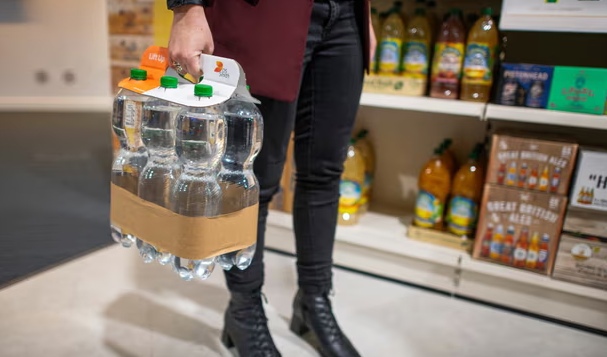Slovakia’s environment ministry should reject legislative plans that could jeopardise a successful deposit return system (DRS) that serves as a model for other EU countries, Euractiv reports.
Nine beverage packaging companies, including EUROPEN, Brewers of Europe and Zero Waste Europe, expressed “strong concerns” in a joint letter about proposed amendments to Slovak DRS legislation for single-use drinks packaging, presented by Environment Minister Tomáš Taraba (for SNS) in August.
The changes would not only undermine the system, but would also violate “a number of principles established in Slovak and EU law,” the letter said, urging the ministry to withdraw its draft amendments. Signatories stressed:
The Slovak system is clearly one of the leading examples of a well-organised DRS and serves as an inspiration for many other European countries which are preparing to establish their own DRS.
The proposed changes to the Backup Act will strengthen state control over the system. The ministry argues that the current DRS administrator is mismanaging the programme, failing to meet mandatory targets and potentially exposing Slovakia to future EU sanctions.
Bratislava exceeded targets
However, European organisations see the situation differently.
In their view, Slovakia has not only improved the collection and recycling of single-use beverage packaging and reduced litter since the system was introduced in 2022, but has also exceeded mandatory EU targets.
Specifically, Slovakia has achieved a collection rate of more than 90 per cent of beverage packaging in 2023, which is several years ahead of the EU targets of 77 per cent of packaging by 2025 and 90 per cent by 2029, as required by the EU Single-Use Plastics Directive.
In its response to Euractiv Slovakia, the Environment Ministry reaffirmed Slovakia’s right as an EU member state to adapt its system to national needs and rejected what it called “lobbyist interference.”
“The payment system has been used to drive Slovak producers out of business by preventing them from obtaining recycling codes and thus legally selling their products,” the response said, calling the current mechanism a “scandal.”
The response also refers to the obligation to make the system transparent, as citizens are “forced to pay significant sums to several private companies through this monopoly imposed by law.”
Possible contradictions
However, according to the organisations that signed the letter, the proposed changes contradict a number of legislative principles, notably the concept of extended producer responsibility (EPR) and the minimum requirements for DRS.
Instead, they called for a constructive dialogue with industry representatives and the DRS administrator to resolve the issues without disrupting the system. Slovakia’s DRS administrator acknowledged the letter and hoped to co-operate with the ministry.
The proposed amendment was also criticised by the Slovak Chamber of Agriculture and Food (SPPK), opposition parties and even the Ministry of Finance.
The SPPK called it “unconstitutional” and in breach of EU law, while the Ministry of Finance said it would increase fees and that the Environment Ministry’s justification was inadequate.
